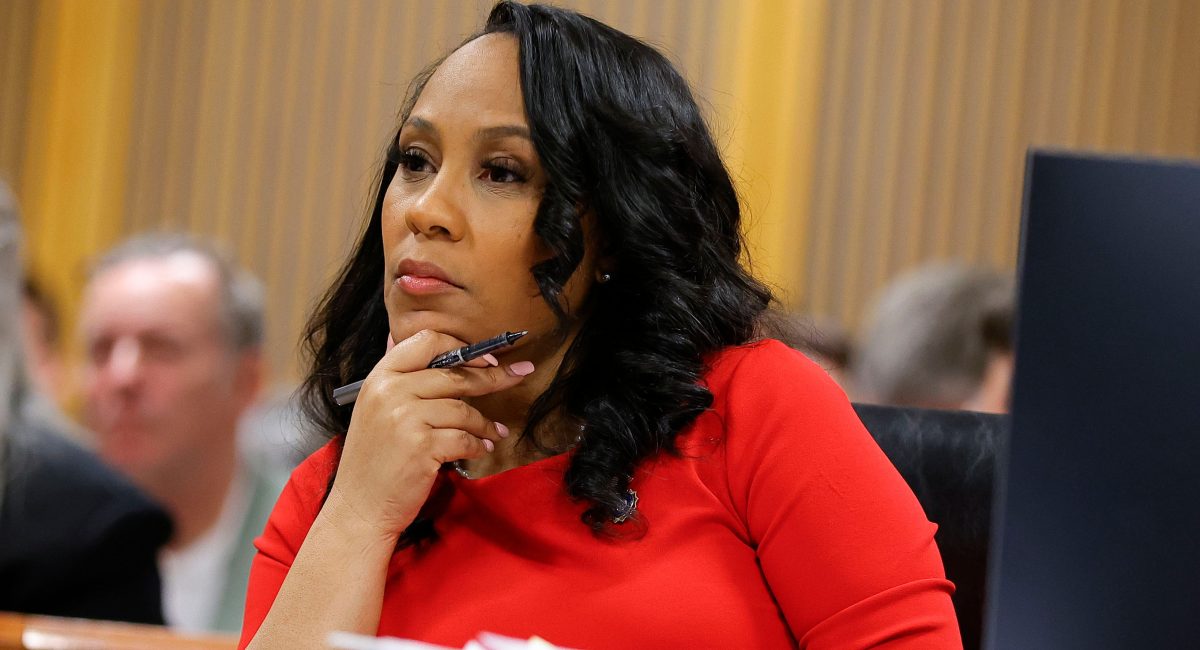With much of the NFL world camped out in the San Francisco Bay Area in the days before Super Bowl 50, researchers released sobering news: late Oakland Raiders quarterback Ken Stabler had a degenerative brain disease associated with repeated blows to the head.
Later Wednesday, another late, great QB, Earl Morrall, also was revealed to have had chronic traumatic encephalopathy (CTE), which is associated with memory loss, impaired judgment and progressive dementia. Dozens of former players have been diagnosed, some who died in old age, like Frank Gifford, and a few who took their lives, like Junior Seau.
There is no known treatment for CTE, not least because there's no test that can point it out in the living — it's detected in post-mortem brain scans. But to one former player who's sure his nine-year career gave him the disease, there's an obvious treatment that isn't allowed in the NFL, even though it would be easy to score not far from Levi's Stadium on Super Bowl Sunday for anyone with a doctor's note: medical marijuana.
"If cannabis is implemented and (the NFL) can lead the science on this, they can resolve this brain injury situation in a big way," Kyle Turley said.
Turley is at the forefront of a vocal movement arguing that medical marijuana's pain-suppressing and possible neuroprotective benefits make it the only effective treatment for the effects that chronic concussive blows to the head have on football players. As co-founder of the Gridiron Cannabis Coalition, Turley is the movement's most outspoken member, but it also includes other retired players and rapper/marijuana entrepreneur Snoop Dogg.
[NATL] Top Sports Photos: Washington Nationals Win World Series, and More
More players' brains are found to show signs of CTE with each year that passes. Researchers at Boston University have found evidence of CTE in 96 percent of the NFL players' brains they examined. At the same time, more states are allowing doctors to prescribe marijuana as a medicine – 23 so far, according to National Organization for the Reform of Marijuana Laws.
U.S. & World
California was the first state to legalize medicinal marijuana, and remains the only medical marijuana-legal state so far to host the Super Bowl. Nearly half of the medical marijuana identification cards issued in California were prescribed in the Bay Area, according to the Department of Public Health.
A small body of research suggests marijuana can heal head trauma, yet Turley wonders why the league isn't investigating the drug as a medicine. To advocates, hosting the Super Bowl in the region is almost hypocritical, given what they see happening to the heads of NFL players and the spiraling lives of some former players.
"The NFL's policy against medical marijuana is stupid and counterproductive," said Dale Gieringer, director of the California chapter of NORML, in an email calling the NFL out of touch with the laws of the state. "There's no doubt NFL players would be better off with medical access to marijuana."
The NFL did not comment for this story.
Jump to:
>>Science, the Brain and Medical Marijuana
>>The NFL, CTE and Medical Marijuana
Hard-Knock Lives
Turley is a former defensive lineman who has been extremely outspoken about his medical struggles after playing for three NFL teams in nine years.

A New Yorker article from 2009 describes him blacking out at a Nashville concert, feeling much the same way he did when he was kneed in the head during a game years earlier. The former lineman had recently retired and was taking painkillers. He wound up in the hospital, where he said he briefly lost nearly all control of his body.
"Before quitting all the pills and committing to cannabis ... my life was a train wreck, plain and simple," Turley told NBC Owned Television Stations.
Today, Turley has eliminated all other chemicals from his system, from Aleve to Zoloft, he said. The San Diego resident has found strains of marijuana that relieve pain and other strains with effects comparable to the psychiatric pill Vicodin, but without the narcotic effects.
Medical marijuana has fairly well known, though not conclusively proven, pain relieving benefits. But to Turley, the drug also treats mental anguish he believes comes from CTE. There is very little research on that front, but the 40-year-old father insists marijuana has given him stability after recently feeling despondent and suicidal.
"The reality is I don't think about those things anymore. And if it wasn't for cannabis, I wouldn't be where I am mentally," Turley said.
Turley swears that marijuana use is rampant in the NFL – "from players to coaches to owners, marijuana is in the National Football League" – but only a handful of players have spoken out about using it. They emphasize the mental clarity it offers as much as the pain relief.
"I always healed fast, ahead of schedule; was never really very swollen; my mind was very sharp, and after concussions medicated with it," Nate Jackson told marijuana magazine High Times this week, discussing how marijuana helped him in his days with the Broncos in the 2000s.
It's not just young players who swear by pot, either. Jim McMahon, one of the heroes of the Chicago Bears' 1985 championship, revealed last month that he weaned himself off pharmaceutical drugs that left his head feeling fuzzy.
"This medical marijuana has been a godsend. It relieves me of the pain – or thinking about it, anyway," he told The Chicago Tribune.
But there isn't much medical research to back up their claims.
Science, the Brain and Medical Marijuana
Most medical marijuana advocacy is directed at the drug's pain-relieving qualities, which may be recognized by many states, but not the federal government. The FDA has not approved marijuana as a drug, though it notes there is widespread general interest in its potential as a less addictive alternative to painkillers.
But last year, the Journal of the American Medical Association found only some evidence that medical marijuana and similar drugs help chronic pain, less evidence for help with nausea and brain disorders and a risk of adverse effects, including nausea, fatigue and confusion. The National Institute on Drug Abuse says long-term marijuana use can affect learning, thinking and memory, and has been linked to mental illness and depression.
Advocates dispute those claims, and in the case of brain trauma, their case is bolstered, in some sense, by the fact that little research has been done on medical marijuana's effects on the brain.
The psychoactive chemical in medical marijuana, THC, was associated with a significantly improved mortality rate in patients who sustained traumatic brain injuries, according to a 2014 UCLA study. A study by Michigan State University researchers found that, in test tubes, THC reduced tau deposits, which indicate CTE and Alzheimer's.
Marijuana advocates cite these and some other studies when describing the drug's purported neuroprotective effects, saying it may be able to protect and heal brain cells in a way no other drugs can.
Other supporters only go as far as saying they intoxicate and sedate patients less than opiates do, and are easier on the stomach than anti-inflammatories, like Berkeley Dr. Frank Lucido, who says he has prescribed marijuana to two former NFL players. Asked about any neuroprotective effects, he noted they were unproven in humans.
Turley and others who do believe the drug can protect or restore neurological function mainly argue that more research needs to be done, and soon. A federal study found in 2012 that retired players were three times likelier to die of neurodegenerative diseases than the U.S. population on the whole.
"NFL pockets are deep enough to support a crash research program to determine that this combination of cannabinoids is effective in preventing the consequences of concussion," Harvard emeritus professor of Psychiatry Lester Grinspoon wrote in an open letter to the commissioner of the NFL in 2014.
For now, marijuana remains a problem in the NFL, subject to fines and suspensions during the season for repeat offenders, just as the federal government continues to classify marijuana as one of the most dangerous drugs.
Turley hopes his Gridiron Cannabis Coalition will help change that position, as much for the players as for Alzheimer's patients and others he thinks can benefit from cannabis.
"The attitude of the active players is the attitude of police forces around our country," Turley said. "It is absurd that this continues to be a reason for a player to be suspended or someone is arrested. We don't want to deal with this anymore."
The NFL, CTE and Medical Marijuana
On Saturday, the NFL announced that Ken Stabler will be inducted into the Hall of Fame. If last year's ceremony is any indication, CTE will hardly be mentioned at all when he is honored.
The 2015 induction of Junior Seau, who was 43 when he killed himself, was marred by the league's initial refusal to let his family speak at the ceremony. The league cited a long-standing policy, but many noted that the family had sued the NFL, saying his suicide was at least partially caused by repeated hits to the head sustained in his playing days. His daughter eventually did speak, and did not mention Seau's brain.
Though the league settled concussion-connected lawsuits last year involving thousands of former players, about 200 opted out, including Seau's family. The suits claimed players weren't properly protected from concussions or informed of their risks.
The NFL did not admit liability in settling the suits. Since CTE has become associated with football, the NFL has also donated a substantial amount of money to research, including $30 million to the National Institutes of Health – its largest-ever donation to any organization.
As for medical marijuana use, there are signs that the league's position could change.
A representative for the the NFL Player's Association told NBC Owned Television Stations it is reviewing medical-marijuana policy, though didn't comment further. The union works with the NFL to set the league's drug policy.
And the league that doled out four drug-related suspensions to Ricky Williams – the electric running back whose career is now synonymous with marijuana in the game – has recently expressed more openness toward medical marijuana, if not the drug on the whole.
Commissioner Roger Goodell briefly addressed the issue in the run-up to last year's Super Bowl, saying the NFL could one day condone cannabis as a treatment but that its medical experts didn't yet consider its use proper.
If the league did decide to reverse course on the issue, it would still face a major hurdle: the federal ban on marijuana would mean players without contracts might gravitate to teams in states where medication was legal.
Not that that should stop the league from trying, said Turley, a fiery speaker about the cause.
"It would have been an amazing opportunity for the NFL to have dealt with this proactively, instead of allowing this to be another thing that shows their desire to really change things is very lackluster," Turley said.
Turley, Williams and McMahon will all talk about their experiences with marijuana this month at the Southwest Cannabis Conference and Expo in Dallas, the first marijuana conference in a state that hasn’t legalized marijuana medicinally, according to Rory Mendoza, the event’s organizer.
Their goal, for now is to slowly raise awareness about how the drug helped them, like a football team grinding out a long drive a few yards at a time.
And on Sunday, Turley will be watching the Super Bowl at home with family and friends, avoiding intoxicants and drugs – except the one he believes can save his life, which he long ago dedicated to football.



